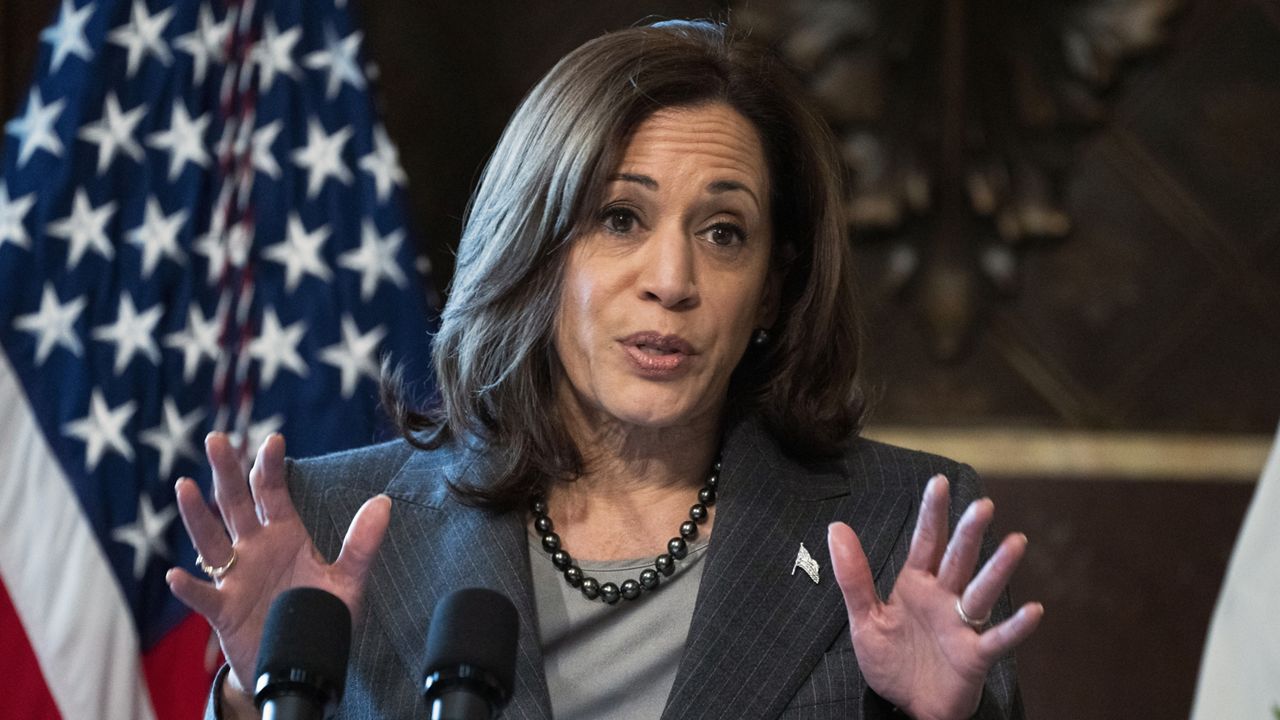Vice President Kamala Harris convened abortion-rights leaders Friday at the White House, as a Texas judge decides the fate of a key abortion drug.
What You Need To Know
- Vice President Kamala Harris convened abortion-rights leaders Friday at the White House, as a Texas judge decides the fate of a key abortion drug
- In the federal lawsuit filed in November, the group Alliance Defending Freedom argues that the Food and Drug Administration approved the drug mifepristone in 2000 using an accelerated review process meant only for drugs to treat “serious or life-threatening illnesses"
- The vice president said efforts to rescind the FDA approval of mifepristone are attacks on the “legitimacy of a group of scientists and doctors who have studied the significance of this drug"
- Friday’s meeting aimed to discuss mifepristone and other issues related to reproductive health
In the federal lawsuit filed in November, the group Alliance Defending Freedom argues that the Food and Drug Administration approved the drug mifepristone in 2000 using an accelerated review process meant only for drugs to treat “serious or life-threatening illnesses.”
Alliance Defending Freedom also was involved in the Mississippi case that led to the Supreme Court overturning Roe v. Wade last year, returning laws on abortions to state legislatures.
U.S. District Judge Matthew Kacsmaryk, who was appointed by former President Donald Trump, could rule on the case as early as Friday. If he sides with Alliance Defending Freedom, mifepristone would become unavailable in states where abortions are banned as well as in states where the procedures are legal. However, the decision would likely be appealed, and a second drug, misoprostol, could still be used as abortion medication.
Earlier this month, a group of 22 Democratic-led states weighed in, saying the consequences of reversing the approval could be “nothing short of catastrophic.” A similar-sized group of Republican states also filed briefs supporting the reversal, saying the ability to order pills by mail undermines their laws banning abortion.
Harris said that since Roe was struck down, “as we predicated and feared every day … we have seen strategic attempts and attacks” to further restrict abortion access.
The vice president said efforts to rescind the FDA approval of mifepristone are attacks on the “legitimacy of a group of scientists and doctors who have studied the significance of this drug.” She said the agency used the same process for mifepristone as it does to approve countless other medicines Americans use.
“Those who would attack this process and the ability of the FDA to make these decisions ought to look in their own medicine cabinets,” Harris said.
Friday’s meeting aimed to discuss mifepristone and other issues related to reproductive health. Representatives from providers and legal organizations were among those in attendance, the White House said. Only Harris’ welcoming remarks were open to the press.
“The president has been very clear that we are committed to protecting every woman's right to make decisions about her own body and her own future, and that all people in our country should have that freedom and liberty,” Harris said.
The FDA said in its legal response to the lawsuit that it did not rush the approval of mifepristone, which came four years after the manufacturer first submitted its application to market the pill.
The agency deemed the drug safe and effective and authorized it for use in combination with misoprostol.
Mifepristone dilates the cervix and blocks the action of the hormone progesterone, which enables a pregnancy to continue. Misoprostol causes contractions that empty the uterus. Typically, mifepristone is taken by mouth first, followed by misoprostol a day or two later.
The drugs are used in just over half of all U.S. abortion.
Mifepristone, which also treats gastric ulcers, is used as a standalone abortion medication in countries where mifepristone is not approved, and some U.S. clinics and telehealth providers also offer misoprostol-only abortions.
In these instances, one four-tablet dose of misoprostol is typically recommended for very early abortions. Additional doses taken four hours apart are recommended for later abortions.



